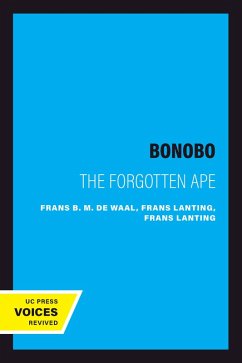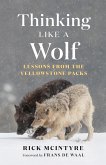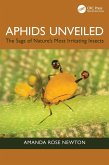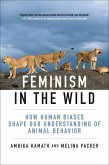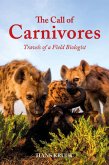This remarkable primate with the curious name is challenging established views on human evolution. The bonobo, least known of the great apes, is a female-centered, egalitarian species that has been dubbed the "make-love-not-war" primate by specialists. In bonobo society, females form alliances to intimidate males, sexual behavior (in virtually every partner combination) replaces aggression and serves many social functions, and unrelated groups mingle instead of fighting. The species's most striking achievement is not tool use or warfare but sensitivity to others.
In the first book to combine and compare data from captivity and the field, Frans de Waal, a world-renowned primatologist, and Frans Lanting, an internationally acclaimed wildlife photographer, present the most up-to-date perspective available on the bonobo. Focusing on social organization, de Waal compares the bonobo with its better-known relative, the chimpanzee. The bonobo's relatively nonviolent behavior and the tendency for females to dominate males confront the evolutionary models derived from observing the chimpanzee's male power politics, cooperative hunting, and intergroup warfare. Further, the bonobo's frequent, imaginative sexual contacts, along with its low reproduction rate, belie any notion that the sole natural purpose of sex is procreation. Humans share over 98 percent of their genetic material with the bonobo and the chimpanzee. Is it possible that the peaceable bonobo has retained traits of our common ancestor that we find hard to recognize in ourselves?
Eight superb full-color photo essays offer a rare view of the bonobo in its native habitat in the rain forests of Zaire as well as in zoos and research facilities. Additional photographs and highlighted interviews with leading bonobo experts complement the text. This book points the way to viable alternatives to male-based models of human evolution and will add considerably to debates on the origin of our species. Anyone interested in primates, gender issues, evolutionary psychology, and exceptional wildlife photography will find a fascinating companion in Bonobo: The Forgotten Ape.
This title is part of UC Press's Voices Revived program, which commemorates University of California Press's mission to seek out and cultivate the brightest minds and give them voice, reach, and impact. Drawing on a backlist dating to 1893, Voices Revived makes high-quality, peer-reviewed scholarship accessible once again using print-on-demand technology. This title was originally published in 1998.
This remarkable primate with the curious name is challenging established views on human evolution. The bonobo, least known of the great apes, is a female-centered, egalitarian species that has been dubbed the "make-love-not-war" primate by specialists. In
In the first book to combine and compare data from captivity and the field, Frans de Waal, a world-renowned primatologist, and Frans Lanting, an internationally acclaimed wildlife photographer, present the most up-to-date perspective available on the bonobo. Focusing on social organization, de Waal compares the bonobo with its better-known relative, the chimpanzee. The bonobo's relatively nonviolent behavior and the tendency for females to dominate males confront the evolutionary models derived from observing the chimpanzee's male power politics, cooperative hunting, and intergroup warfare. Further, the bonobo's frequent, imaginative sexual contacts, along with its low reproduction rate, belie any notion that the sole natural purpose of sex is procreation. Humans share over 98 percent of their genetic material with the bonobo and the chimpanzee. Is it possible that the peaceable bonobo has retained traits of our common ancestor that we find hard to recognize in ourselves?
Eight superb full-color photo essays offer a rare view of the bonobo in its native habitat in the rain forests of Zaire as well as in zoos and research facilities. Additional photographs and highlighted interviews with leading bonobo experts complement the text. This book points the way to viable alternatives to male-based models of human evolution and will add considerably to debates on the origin of our species. Anyone interested in primates, gender issues, evolutionary psychology, and exceptional wildlife photography will find a fascinating companion in Bonobo: The Forgotten Ape.
This title is part of UC Press's Voices Revived program, which commemorates University of California Press's mission to seek out and cultivate the brightest minds and give them voice, reach, and impact. Drawing on a backlist dating to 1893, Voices Revived makes high-quality, peer-reviewed scholarship accessible once again using print-on-demand technology. This title was originally published in 1998.
This remarkable primate with the curious name is challenging established views on human evolution. The bonobo, least known of the great apes, is a female-centered, egalitarian species that has been dubbed the "make-love-not-war" primate by specialists. In
Dieser Download kann aus rechtlichen Gründen nur mit Rechnungsadresse in A, D ausgeliefert werden.

